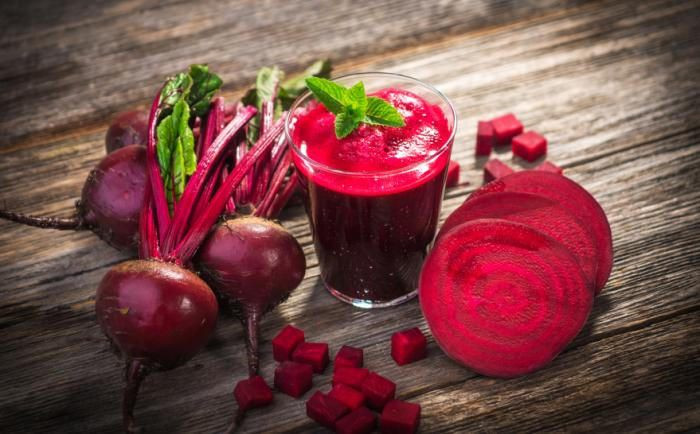Beet Juice As A Workout Supplement? Scientists Say The Nitrates From Beet Juice Can Lead To Better Workouts

Packed with antioxidants and anti-inflammatory properties, beetroot juice has long been touted for its ability to reduce blood pressure, lower our risk for heart disease, and improve stamina among men. Evidence has even shown that it can help increase blood flow to the brains of older people and stave off dementia due to its high concentration of nitrates.
A recent study published in the American Journal of Physiology - Regulatory, Integrative and Comparative Physiology has found that in addition to lowering our blood pressure, regularly drinking beetroot juice can increase our exercise performance in terms of our heart’s workload and oxygen delivery to our muscles.
The effect beet juice has on blood pressure is nothing we didn’t already know, though. A similar study published in the American Heart Association’s journal Hypertension examined the effects of beetroot juice among eight women and seven men with high blood pressure. Results showed that drinking one cup of beetroot juice each day led to a seven percent drop in blood pressure readings.
"We were surprised by how little nitrate was needed to see such a large effect," Dr. Amrita Ahluwalia, the study’s lead author, said in a statement. "This study shows that compared to individuals with healthy blood pressure much less nitrate is needed to produce the kinds of decreases in blood pressure that might provide clinical benefits in people who need to lower their blood pressure."
Researchers conducting this new study recruited 14 healthy adult males who were asked to consume either nitrate-rich beetroot juice or nitrate-depleted beetroot juice. The research team collected each participant’s blood pressure readings and their number of dilated blood vessels while they adhered to strict beetroot juice supplementation over the course of 15 days.
Findings showed that participants who drank nitrate-rich beetroot juice had lower blood pressure and more dilated blood vessels both at rest and during exercise. Drinking beet juice also allowed blood vessels to dilate more easily, which led to the heart consuming less oxygen during physical activity. Not only did the nitrates reduce the amount of work the heart is tasked with during exercise, but it also increased oxygen delivery to the muscles, something essential.
According to the American Society for Nutrition, around 80 percent of dietary nitrates are found in vegetables. Other sources for dietary nitrates include certain fruits and processed meats. Two beetroots contain around 0.2 grams of dietary nitrate, which is equivalent to a large bowl of lettuce.
Source: Choi H, Chang M, Kim J, Nho H, Jung E, Stebbins C, Lee J. Effects of Chronic Dietary Nitrate Supplementation on the Hemodynamic Response to Dynamic Exercise. American Journal of Physiology-Regulatory, Integrative and Comparative Physiology. 2015.



























